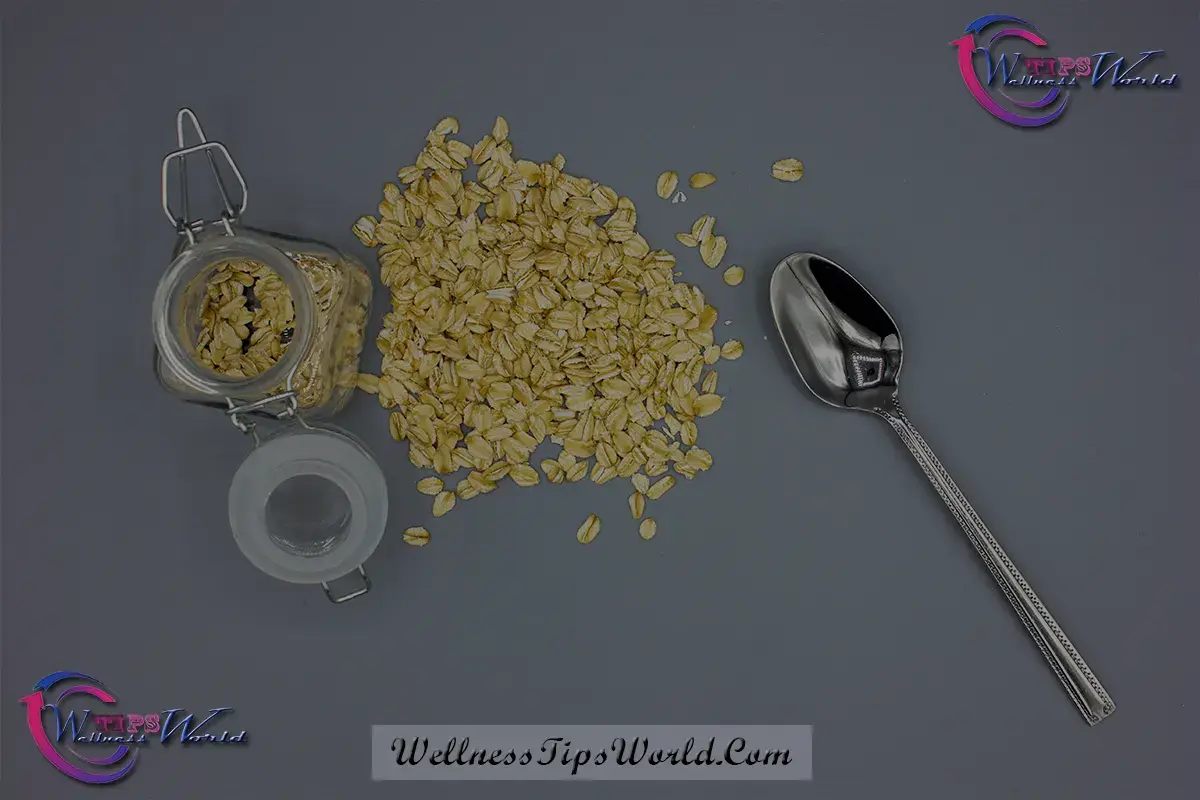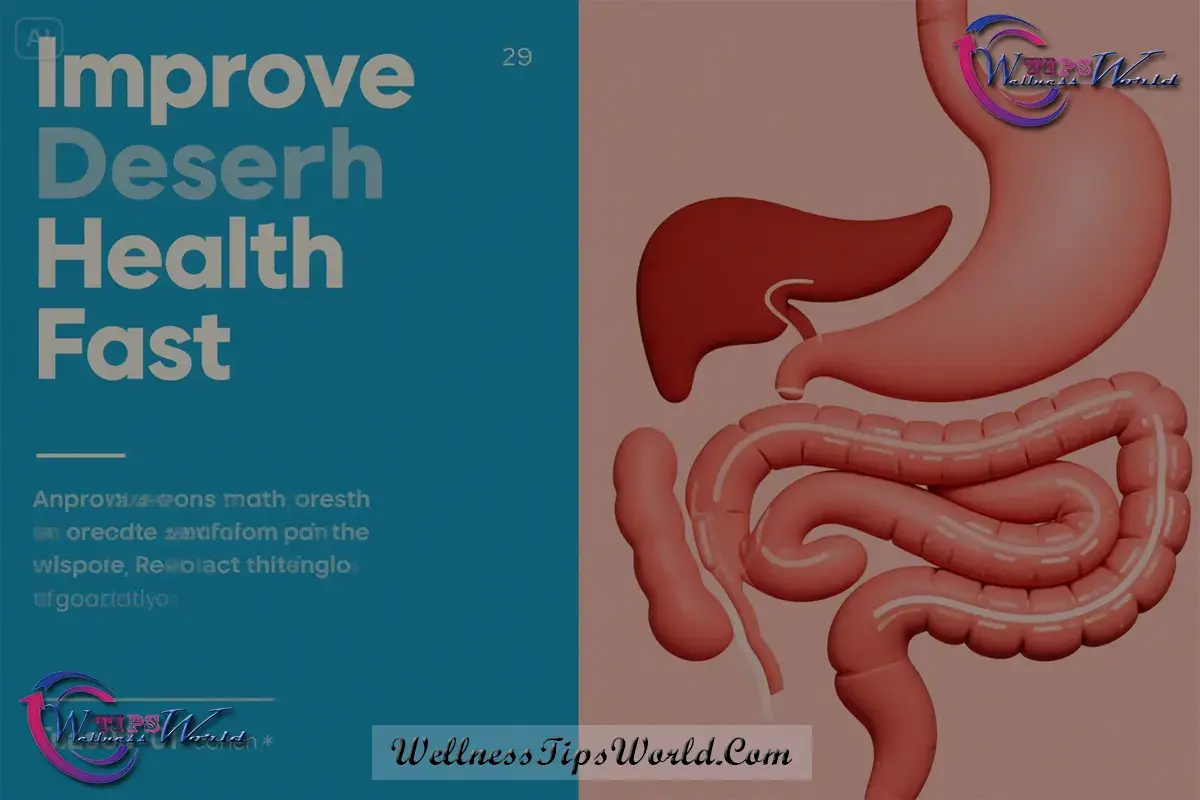7 Proven Tips to Improve Digestive Health Fast
-
87
- 13 May, 2025

Digestive health plays a crucial role in maintaining overall wellness. When your digestive system isn’t functioning optimally, it can affect your energy, immune system, and even your mood. If you’ve been struggling with bloating, constipation, or discomfort, there’s good news: improving your digestive health can be achieved quickly and effectively. In this article, we’ll share 7 proven tips to improve digestive health fast, empowering you to feel better and more energized in no time.
Whether you’re dealing with occasional digestive issues or looking to boost your gut health long-term, these tips will give you practical, actionable steps to make a difference. Read on to discover how simple lifestyle changes can have a profound impact on your digestive system and overall well-being.
Why Digestive Health Matters
Before we dive into the tips, it’s important to understand why digestive health is so vital. Your digestive system is responsible for breaking down food and absorbing nutrients, which fuels your body. When it isn’t functioning properly, you may experience constipation, diarrhea, gas, or bloating. Over time, poor digestion can lead to more serious health issues, including weight gain, fatigue, and weakened immunity.
By improving your digestion, you not only feel better but also boost your body’s ability to absorb essential nutrients, support immune health, and maintain an ideal weight. With the following tips, you’ll be on your way to better digestive health in no time.
1. Increase Your Fiber Intake
Fiber is a cornerstone of digestive health. It helps regulate bowel movements, prevents constipation, and promotes the growth of healthy gut bacteria. Aim to consume at least 25–30 grams of fiber per day, which can be easily achieved through fruits, vegetables, whole grains, and legumes.
Benefits of Fiber:
- Improves bowel regularity
- Reduces bloating
- Supports healthy gut bacteria
- Promotes satiety, helping with weight management
Best Fiber-Rich Foods:
- Whole grains (brown rice, quinoa, oats)
- Legumes (lentils, beans, chickpeas)
- Vegetables (broccoli, spinach, carrots)
- Fruits (apples, pears, berries)
By adding more fiber to your meals, you’re ensuring that your digestive system functions smoothly and efficiently.
2. Stay Hydrated
Proper hydration is crucial for digestion. When you’re dehydrated, your body may struggle to break down food, leading to constipation and slower digestion. Drinking enough water helps your digestive system move food through your intestines and ensures that waste is eliminated regularly.
How Much Water Should You Drink?
A good rule of thumb is to drink at least 8 cups (64 ounces) of water per day. However, if you are active or live in a hot climate, you may need more. Herbal teas and water-rich foods like cucumbers, watermelon, and oranges also contribute to hydration.
Benefits of Staying Hydrated:
- Promotes smooth digestion
- Prevents constipation
- Reduces bloating
Staying hydrated is one of the simplest and most effective ways to support digestive health.
3. Incorporate Probiotics into Your Diet
Probiotics are beneficial bacteria that promote a healthy gut flora. These good bacteria support your digestive system by helping break down food, absorbing nutrients, and preventing harmful bacteria from taking over. You can boost your gut health quickly by adding probiotic-rich foods to your diet.
Top Probiotic-Rich Foods:
- Yogurt with live active cultures
- Kefir
- Sauerkraut
- Kimchi
- Miso
- Tempeh
For a more concentrated dose, you can also take probiotic supplements, but it’s always best to first try incorporating natural sources of probiotics into your daily routine.
Benefits of Probiotics:
- Enhances digestion and nutrient absorption
- Supports a balanced gut microbiome
- Could potentially alleviate symptoms of irritable bowel syndrome (IBS) and other digestive conditions.
By introducing probiotics to your diet, you are directly nourishing the health of your gut microbiome.
4. Eat Smaller, More Frequent Meals
Instead of consuming large meals, try eating smaller meals more frequently throughout the day. This approach can help prevent overloading your digestive system and support better digestion overall.
Why It Works:
- Consuming large meals can strain your digestive system, causing indigestion, bloating, and fatigue.
- Smaller meals give your body the time it needs to properly digest food and absorb nutrients.
- This method also helps maintain steady blood sugar levels, preventing energy crashes.
Tips for Eating Smaller Meals:
- Incorporate protein, fiber, and healthy fats into every meal to help keep you feeling full.
- Avoid overeating by eating slowly and listening to your body’s hunger cues.
- If you can, aim to eat every 3–4 hours.
This small adjustment can drastically improve your digestive efficiency and keep you feeling energized throughout the day.
5. Reduce Stress Levels
Stress is one of the most overlooked factors affecting digestive health. When you’re stressed, your body produces stress hormones like cortisol, which can interfere with digestion and lead to discomfort, bloating, or even stomach ulcers. Learning to manage stress can improve digestion and overall well-being.
Stress-Reduction Techniques:
- Mindful breathing or meditation
- Yoga and gentle stretching
- Taking regular breaks throughout the day
- Participating in activities that bring you happiness, like spending time with loved ones or enjoying hobbies.
By managing your stress effectively, you can significantly improve your digestion and feel more at ease in your body.
6. Chew Your Food Thoroughly
One of the simplest and most effective ways to improve digestion is to chew your food thoroughly. Digestion starts in the mouth with enzymes that break down carbohydrates. If you don’t chew your food properly, it puts extra strain on your stomach and intestines, leading to indigestion.
Why Chewing Is Important:
- Helps break down food into smaller, more digestible particles.
- Enhances nutrient absorption by giving digestive enzymes more time to work.
- Prevents bloating and indigestion.
To improve digestion, aim to chew each bite 20-30 times before swallowing. This simple practice can lead to immediate improvements in your digestive health.
7. Exercise Regularly
Consistent physical activity offers a variety of benefits for digestive health. Exercise helps stimulate the muscles in your digestive tract, promoting the movement of food through your intestines. It also supports healthy weight management, which is essential for optimal digestion.
Types of Exercise for Better Digestion:
- Walking: Gentle and effective for improving bowel regularity.
- Yoga: Many yoga poses help stimulate digestion and reduce bloating.
- Cardio: Running, swimming, and cycling are excellent ways to keep your digestive system functioning smoothly.
Benefits of Exercise:
- Improves gut motility
- Reduces the risk of constipation
- Supports overall digestive health
Aim for at least 30 minutes of moderate exercise most days of the week to experience significant benefits for your digestive system.
Improving digestive health doesn’t have to be complicated or time-consuming. By following these 7 proven tips—increasing fiber, staying hydrated, incorporating probiotics, eating smaller meals, managing stress, chewing thoroughly, and exercising regularly—you can start seeing positive changes in your digestive system quickly. Your body will thank you for it, and you’ll enjoy better energy, less bloating, and improved overall well-being.
Remember, small changes can lead to big results. Take the first step toward a healthier gut today and experience the benefits of better digestion.
By following these simple digestive health tips, you'll not only feel better physically but also enjoy a more vibrant life.










